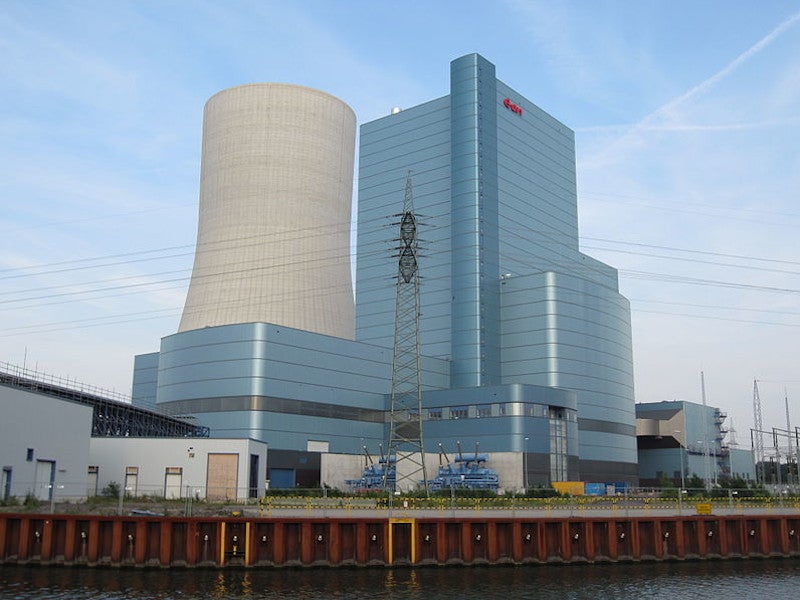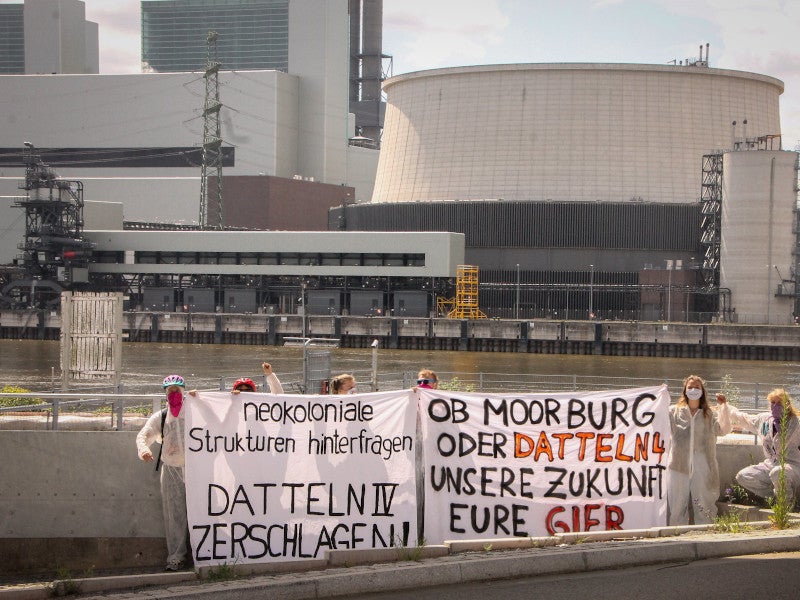The 1.1GW Datteln 4 power plant is the last coal-fired power project to be developed in Germany, the European country which decided in 2019 to phase out all 84 of its coal-fired power stations by 2038.
The Datteln 4 coal-fired power plant is owned and operated by Uniper (formerly E.ON Kraftwerke). Uniper was spun off from E.ON in 2016 while Finnish power company Fortum became the controlling owner of Uniper by acquiring a majority share in the company in March 2020.
Although the construction on the £1.3bn ($1.7bn) facility was started in November 2007 with commissioning originally expected in 2011, the project suffered delays due to legal and technical problems. The project was intended to replace the older Datteln 1, 2, and 3 units as well as another coal-fired unit as the Shamrock (Herne) power plant.
The Datteln 4 project was announced to be complete and ready for commercial operations in May 2020. Datteln 4 is a cogeneration facility with an overall efficiency of up to 60%.
Apart from delivering up to 642MW of electricity into the regional grid for public supply, the cogeneration plant will also provide 413MW of traction electricity for Deutsche Bahn’s railway system, and 380MW of thermal energy to supply district heating for approximately 100,000 households.
Location
Datteln 4 coal-fired power plant is located in Datteln, on the Dortmund-Ems water canal, in the Recklinghausen district, North Rhine-Westphalia, Germany.
Datteln 4 power plant make-up
The Datteln 4 power plant comprises a single coal-fired generating unit equipped with an efficient pulverised coal-fired boiler, a 3,000rpm steam turbine, a steam condenser, a heat exchanger, a flue stack, a switchyard facility, and other auxiliary systems.
The steam generator for the Datteln 4 coal-fired power plant is supplied by Mitsubishi Hitachi Power Systems (MHPS).
Datteln 4 cogeneration plant operations
The power plant operates on bituminous coal which is delivered by barges through the Dortmund-Ems canal. The coal is transported to the coal storage facility at the plant site through closed conveyor belts and then ground to fine dust with the use of five coal pulverisers.
The fine coal dust is dried using hot air and blown into the combustion chamber of the boiler where it is burned at a temperature of more than 1,300°C.
The resultant heat converts the water inside the boiler into steam which is passed into the turbine at high pressure for power generation. The steam turbine consists of a high-pressure (HP), one medium-pressure (MP), and two low-pressure (LP) sections. The steam output of the turbine is condensed into water and piped back to the boiler for reuse.
A portion of the steam is extracted in the LP sections of the turbine and a heat exchanger for transferring the heat energy through an 11km-long underground pipeline connecting the district heating network of Recklinghausen.
The Datteln 4 power plant is equipped with an advanced multi-step flue gas purification system for controlling nitrogen oxides, dust, and sulphur emissions.
Power transmission
The Datteln 4 power plant generates electricity at 50Hz frequency and approximately 642MW is transmitted from the plant’s switchyard to the region’s public electricity grid. A portion of the electricity output (413MW) is converted into 16.7Hz by a traction current converter facility near the plant and is fed to Deutsche Bahn’s 110kV high-voltage grid.
Contractors involved
Mitsubishi Hitachi Power Systems (MHPS) was responsible for the engineering, supply, and commissioning of the steam generator for the Datteln 4 thermal power plant. Schaefer Merkin provided structural engineering services for the project.
Kraftanlagen Gruppe was contracted to provide the heat ventilation and air conditioning (HVAC) system for the plant in 2008, while Guh Group was contracted for the supply of heat-insulated pipes and electrical trace heating system.
Bilfinger was contracted for laying the district heating pipeline for the Datteln 4 project.
Steinmueller Babcock Environment was contracted for the engineering and supply of a limestone-gypsum flue gas desulphurisation (FGD) unit at the plant in 2016.
Donges SteelTec was engaged for the assembly of coal conveyor bridges at the Datteln 4 coal-fired power station.





